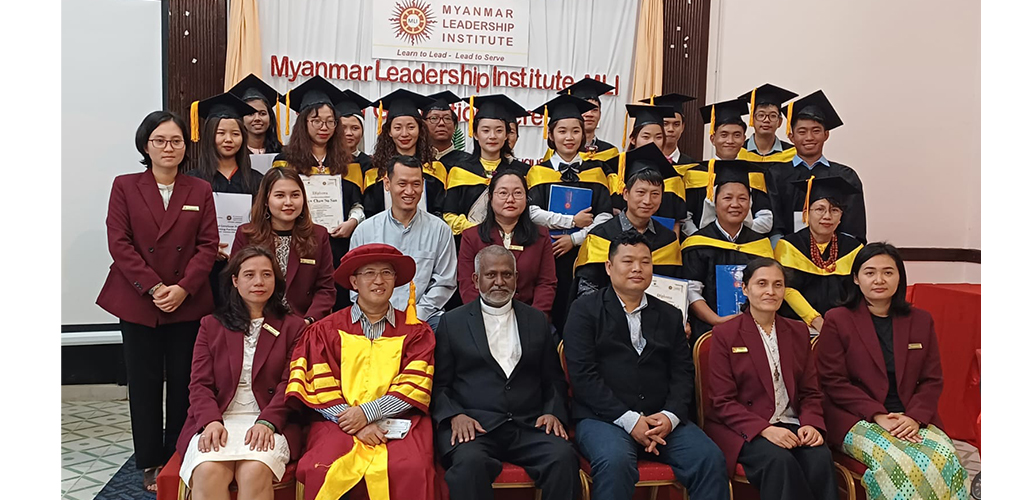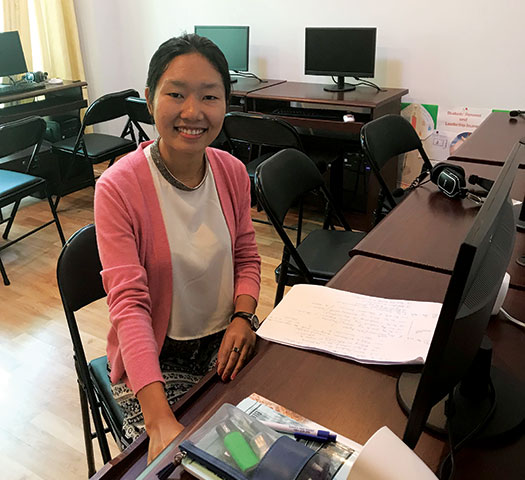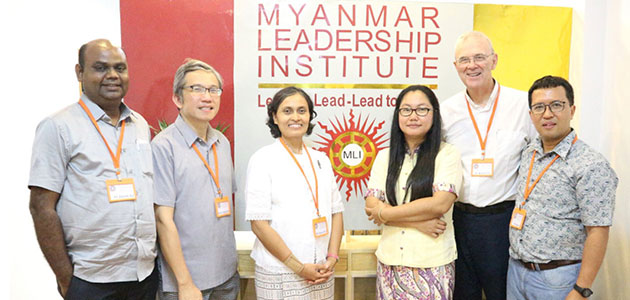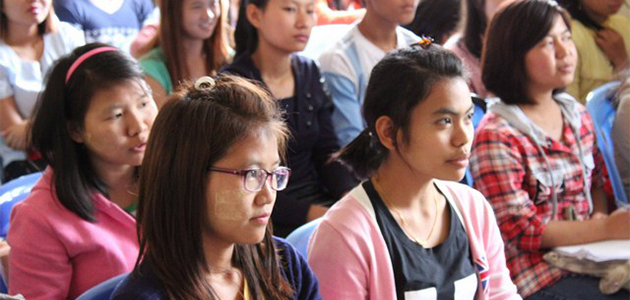The Myanmar Leadership Institute aims to form leaders who are guided by compassion for the vulnerable, and who will promote development, prosperity and peace for all.
Since the military coup in 2021, Myanmar has been in a state of humanitarian crisis. In April 2024, the military junta commenced compulsory conscription for all young men (18-35) and young women (18-27), triggering new levels of turmoil as young men and women attempt to flee the country. Now, over one third of Myanmar’s population is living in extreme need. More than 2.8 million have been forced to flee their homes, while access to basics like education, healthcare and employment are severely limited.
For over two decades, our local partners have been accompanying youth and providing them with skills to transform their futures and help others do so as well.
In October 2018, at the request of Cardinal Charles Bo, Archbishop of Yangon, and with the support of Jesuit Mission Australia, the Myanmar Leadership Institute (MLI) in Yangon was established. The Institute aspires to form a generation of leaders who will see their role through the lens of social justice, and lead with competence and compassion. From under 20 students in its first year, MLI has educated over 900 students, providing them with quality education and leadership training rooted in the Jesuit tradition of academic excellence and social justice.
Today, MLI offers a diverse range of courses and certificates, including a comprehensive Diploma in Leadership spanning four quarters. Additional offerings include the Pastoral Leadership and Management Certificate, Essential Graphic Design Certificate, Teacher Training Certificate, Faculty professional development programs, and specialised workshops on topics such as leadership, women empowerment, applied research, Catholic social teaching, learning facilitation, team building, foundations of leadership, peace leadership, and e-commerce. These programs provide a wide spectrum of educational and professional development opportunities.

“We hope to form leaders who are not only able, capable and employable, but also compassionate, who are able to think critically and creatively towards serving the common good in line with the values of justice, solidarity and preferential option for the poor.”
MLI aims to have a good balance of students in terms of background, profession and faith as it sees its graduates in leadership roles across society – in non-government and civil society organisations, religious communities, the education and health sectors, businesses and government agencies.
Victoria's Story
Victoria, 23, is from a Catholic family in Kachin State, where civil war has led to more than 100,000 being internally displaced. Victoria herself has lived in a camp for internally displaced persons (IDP).
She worked in Kachin for six years before moving to Yangon in 2017. She was a volunteer youth worker and teacher in Phakant diocese and in IDP camps for four years, and later a peace trainer in Myitkyina.
As she went about her work, she came to realise that she needed training. She had to organise and lead people, but she did not know how to do this. She had to speak to donors and partners, but she could not express herself well in English.
She wanted so much to learn and improve her skills that she decided to move across the country to Yangon. She did not let the fact that she did not know anyone there or where she could get good training stop her. A contact suggested she go to the Jesuit-run Campion Institute for English Language.
It was at Campion that she learnt of MLI, and she applied for the leadership course. She is finding the program interesting and challenging especially doing research, which she has never had to do before.
Now she is learning as much as she can, because when she finishes the program, she wants to go back to Kachin to share what she has learnt.

Victoria wants to return to her home state of Kachin to share what she has learnt at MLI
“Leadership is really, really important. I did not know about leadership styles. Now I know I have to lead myself before I can lead others. Before, I thought this course was only for people who were already leaders. Now I know that this course is for all. All of us have to know about leadership skills.”


